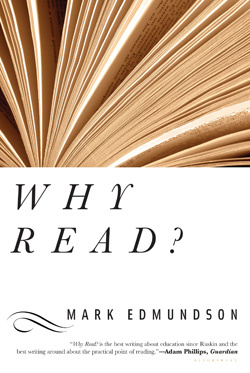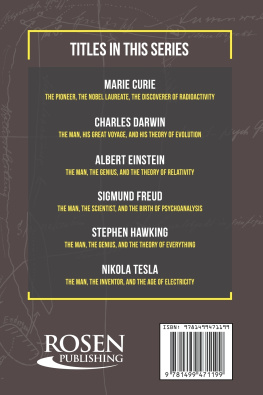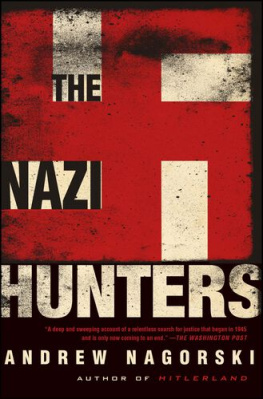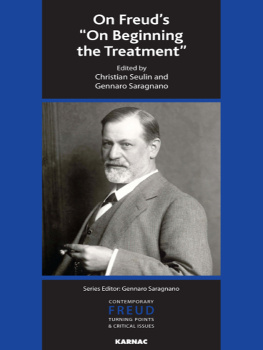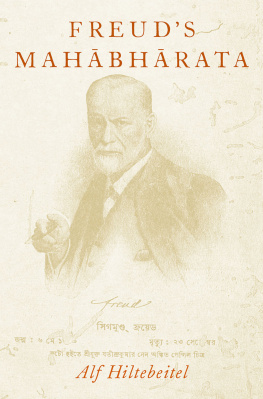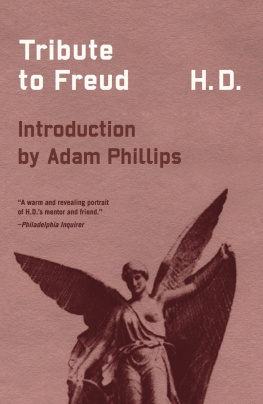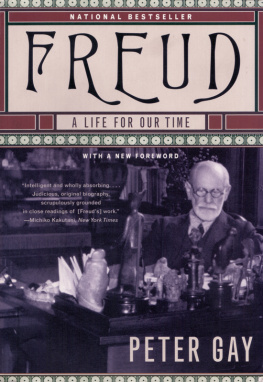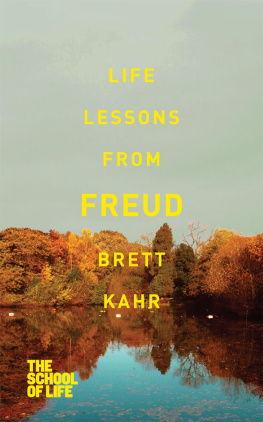The Death of Sigmund Freud
The Legacy of His Last Days
Mark Edmundson
BLOOMSBURY
For Willie, fellow maker
Table of Contents
I
Vienna
In the late autumn of 1909, two men who would each transform the world were living in Vienna, Austria. They were in almost every way what the poet William Blake would have called spiritual enemies. One was Sigmund Freud, the creator of psychoanalysis, who would become the most renowned and controversial thinker of the twentieth century. In 1909, Freud was in vigorous middle age, fifty-three years old and at the height of his powers. The other man, whose impact on humanity would be yet greater, was young.
The young man had come to Vienna in hopes of making his fortune as an architect and an artist. He lived with a friend in a small apartment, and there he spent his time reading, drawing, writing, composing music, and dreaming of future triumphs. The young man had inherited a small sum of money when his mother died, and on these funds he lived frugally, eating little and paying modest rent. His main indulgence was opera, Wagners opera in particular. There were disappointments: he was rejected not once but twice by the state-sponsored art school, and this infuriated him. He had never gotten along well with teachers, and the faculty at the art school was no exceptionthey sneered at his work and told him that he had no real talent. The young man decided to take up a bohemian life and to succeed brilliantly as an architect, and perhaps as a painter, poet, and composer too, despite Austrias corrupt establishment.
Before he left for Vienna, the young man fell in love with a woman named Stefanie, whom he saw on the evening walks he took back in his home city of Linz. Though he never spoke a word to Stefanie, the young man was faithful. All the glories he would achieve in the city, he hoped to lay before her in tribute. So even in decadent Vienna, he tried to lead a moral life: he stayed away from prostitutes; he stayed away from women in general, despite the fact that they often found him alluring. They stared at him at the opera and sent him notes requesting liaisons. But the young man was determined to keep what he called his Flame of Life pure.
From his boyhood, the young man was hypersensitive, prone to tantrums and bouts of weeping. He loved animals and could not bear to hear about any cruelty being inflicted on them, much less to see such a thing. He never drank and was sure that tobacco destroyed a persons health. He thought of himself as a humanitarian with a poetic nature. One of his major projects in Vienna was to design spacious, light-filled housing for the workers who lived in the citys slums, but no one outside his household ever saw the plans.
Soon the one friend that the young man had in Vienna went back home to the provinces, and by the time his friend returned, the young man had left their shabby apartment, giving the landlady no forwarding address. He became lost, lonely, and his money all but ran out. For a while he lived on the street, sleeping in doorways and on park benches. Perhaps at times he was compelled to beg. Finally, he found a home in a mens shelter, a strictly run, almost monastic establishment. Here he lived until a year before the beginning of the First World War, taking a certain kind of pleasure in the simplicity and order that now surrounded him. He made his living by painting postcards, which sold at kiosks on the street. He read a great deal, though he did not always understand what he read, and he gave speeches to the other residents of the shelter. He stood in the dayroom and held forth about the Jews and the Communists and about Germanys exalted destiny among nations. Sometimes one of his fellow residents would secretly tie his coat to the bench he was sitting on, and then provoke him with a political question. The young man would leap up then, and begin pacing around the room, declaiming, while the bench clunked along behind him. People who met the man sometimes had doubts about his sanity: none of them imagined that Adolf Hitler, for that, of course, is who the young man was, would ever be of consequence in the world.
Sigmund Freud was in the prime phase of his life when Hitler was living in Vienna. In middle age, Freud was a robust, full-faced man with a burghers well-insulated body and a dense, regal brown beard, streaked with gray. His usual facial expression somehow conveyed both contentment and ambition. He had a hawk nose and bright, all-consuming eyes. Freud was not tall, only about five feet, seven inches, but his presence was formidable: he seemed to be more than a match for life. In his fifties, Freud looked like a field marshal of intellectworldly, urbanely humorous, and self-aware.
In the fall of 1909, when Hitler was living on the streets, Freud was emerging from a protracted period of isolation. He had undergone an intense self-analysis; he had composed and published his first major work, The Interpretation of Dreams; and he was well begun in his exploration of the unconscious. Now Freud was writing constantly: he believed that once one understood the nature of the idor the itand its conflicted relation to the conscious mind, many previously puzzling matters in human life became understandable. Freud could offer unexpected truths not only about dreams, but also about jokes and slips of the tongue and pen. He had illuminating ideas about art, religion, the sources of human identity, and a great deal more. Now, after Freud had struggled for many years to distinguish himself, brilliant younger men, and some gifted women as well, were gathering around him. He was creating something like a movement.
AS a young man, Freud confessed that he wanted to take on the major questions. He secretly aspired to be something of a philosophe, in the manner of Diderot, Rousseau, and Voltaire, and to make original contributions on matters like free will and fate, just government, love and death, and the good life. Finally, Freud believed that he had put himself in a position to begin doing precisely that. Mapping the dynamics of the unconscious brought him to the threshold of great things, giving him something new and consequential to say on all the questions that had preoccupied the West since at least Platos time. At the end of the first decade of the twentieth century, Sigmund Freud was looking forward to life, and more life, with an intensity that not all men of fifty-three can muster.
In the fall of 1909, when Hider was walking confused and lonely through Vienna, Freud had recently returned from a triumphal visit to the United States. Accompanied by his closest disciples, Carl Jung, Sindor Ferenczi, and Ernest Jones, hed spent a week in New York touring the city, then gone off to Worcester, Massachusetts. There, at Clark University, he gave a celebrated set of talks, which were attended by, among others, Americas preeminent philosopher and psychologist, William James, and by Emma Goldmanthe formidable anarchist intellectual, who found herself in agreement with a good deal of what Freud had to say. Freud even received an honorary degree at Clark. Thinking back to the trip, he would write: In Europe I felt as though I were despised; but over there I found myself received by the foremost men as an equal. It seemed like the realization of some incredible daydream. Freud returned from America with his confidence and his energies redoubled, ready to do what he believed would be great work.
The work that Freud did do, following the American sojourn, went in an unexpected direction. Up until 1909, Freud, to speak broadly, had been fascinated with the dynamics of desire. He wanted to know how the unconscious, the seat and source of desire, worked and in particular how it expressed itself in neuroses and dreams and in works of art. It was during this period that Freud was inclined to see erotic urgesand also, less consequentially, aggressive drivesat the root of human behavior. But as time went on, Freud became more and more preoccupied with the issue of authority, and with the agency that he thought of as the center of authority in the human psyche, the superego, or over-I.
Next page

